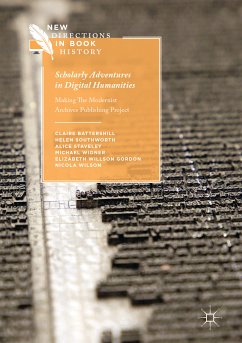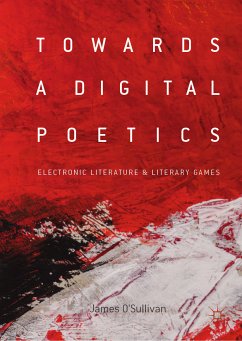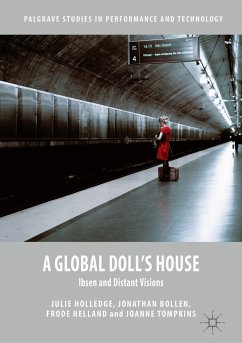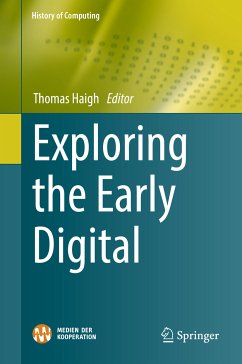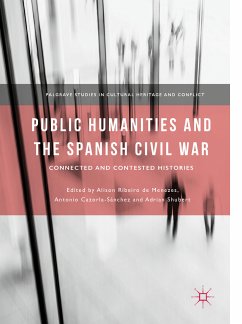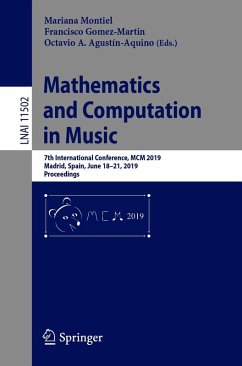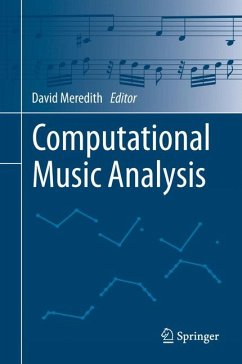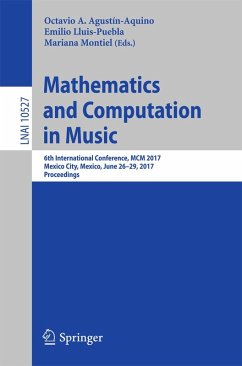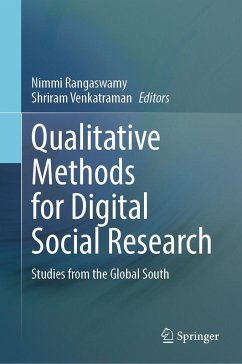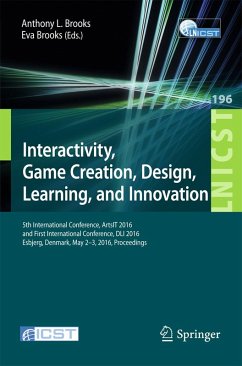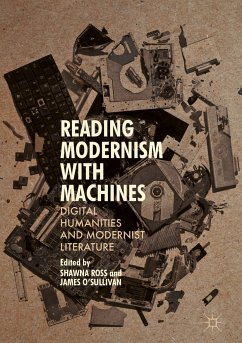
Reading Modernism with Machines (eBook, PDF)
Digital Humanities and Modernist Literature
Redaktion: Ross, Shawna; O'Sullivan, James
Versandkostenfrei!
Sofort per Download lieferbar
72,95 €
inkl. MwSt.
Weitere Ausgaben:

PAYBACK Punkte
36 °P sammeln!
This book uses the discipline-specific, computational methods of the digital humanities to explore a constellation of rigorous case studies of modernist literature.From data mining and visualization to mapping and tool building and beyond, the digital humanities offer new ways for scholars to questions of literature and culture. With the publication of a variety of volumes that define and debate the digital humanities, we now have the opportunity to focus attention on specific periods and movements in literary history. Each of the case studies in this book emphasizes literary interpretation an...
This book uses the discipline-specific, computational methods of the digital humanities to explore a constellation of rigorous case studies of modernist literature.
From data mining and visualization to mapping and tool building and beyond, the digital humanities offer new ways for scholars to questions of literature and culture. With the publication of a variety of volumes that define and debate the digital humanities, we now have the opportunity to focus attention on specific periods and movements in literary history. Each of the case studies in this book emphasizes literary interpretation and engages with histories of textuality and new media, rather than dwelling on technical minutiae. Reading Modernism with Machines thereby intervenes critically in ongoing debates within modernist studies, while also exploring exciting new directions for the digital humanities-ultimately reflecting on the conjunctions and disjunctions between the technological cultures of the modernist era and our own digital present.
From data mining and visualization to mapping and tool building and beyond, the digital humanities offer new ways for scholars to questions of literature and culture. With the publication of a variety of volumes that define and debate the digital humanities, we now have the opportunity to focus attention on specific periods and movements in literary history. Each of the case studies in this book emphasizes literary interpretation and engages with histories of textuality and new media, rather than dwelling on technical minutiae. Reading Modernism with Machines thereby intervenes critically in ongoing debates within modernist studies, while also exploring exciting new directions for the digital humanities-ultimately reflecting on the conjunctions and disjunctions between the technological cultures of the modernist era and our own digital present.
Dieser Download kann aus rechtlichen Gründen nur mit Rechnungsadresse in A, B, BG, CY, CZ, D, DK, EW, E, FIN, F, GR, HR, H, IRL, I, LT, L, LR, M, NL, PL, P, R, S, SLO, SK ausgeliefert werden.



